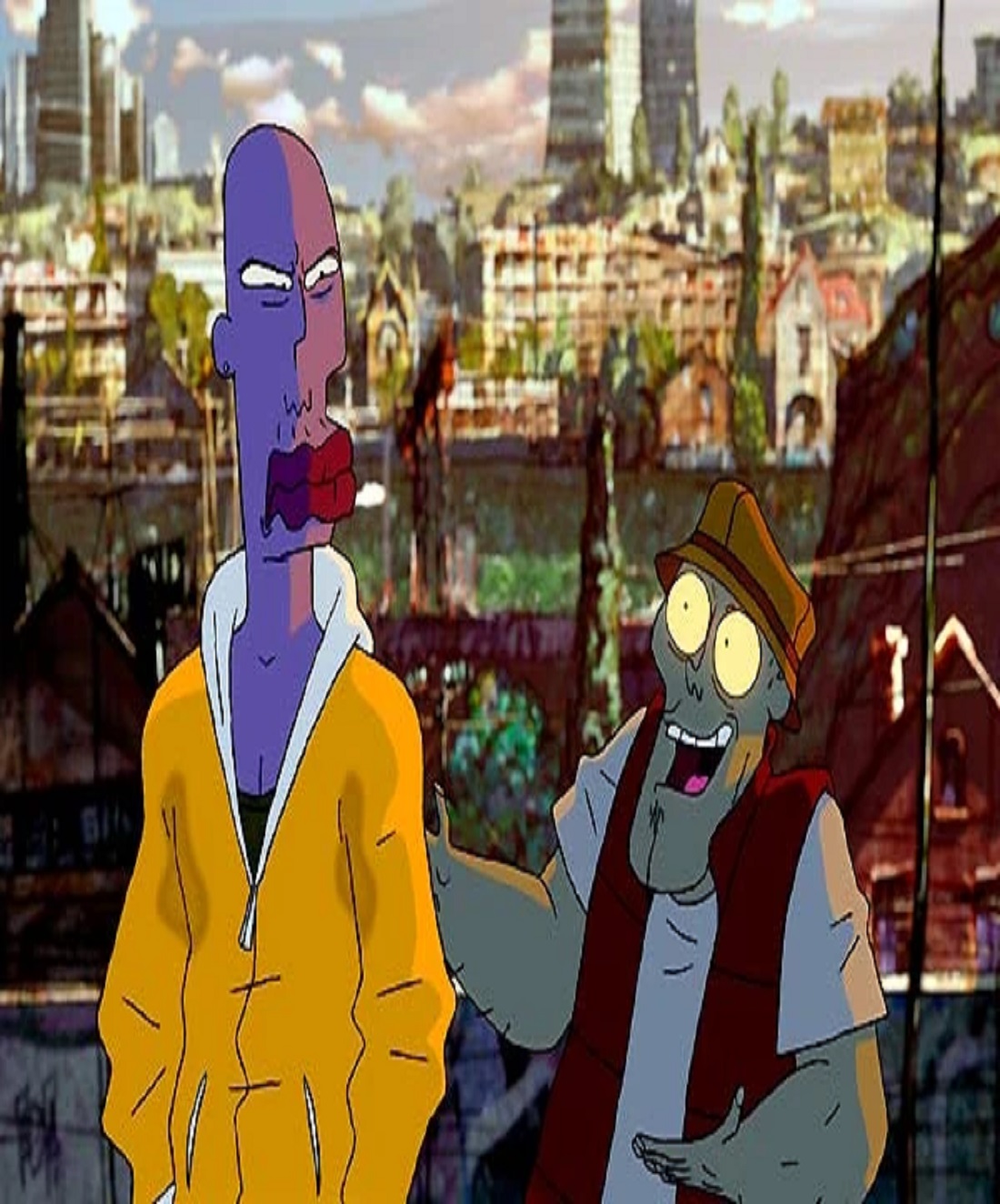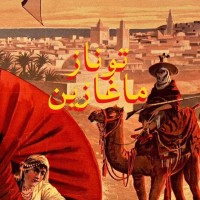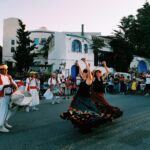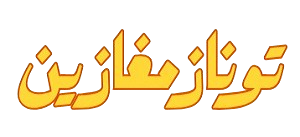
LA7IR YA3ICH
La7ir Ya3ich: A Tunisian Re-Dub of Lascars
La7ir Ya3ich is a Tunisian re-dubbing project based on the original French animated television series Lascars. While the visual content remains identical to the original, the audio has been entirely re-recorded in Tunisian dialect. This project replaces the French dialogue with colloquial Tunisian expressions, jokes, and references, offering a culturally specific reinterpretation of the original material.
The re-dub was initiated by Khaled Bougatfa, a Tunisian creative known for his work in audiovisual and voice production. He collaborated with a group of performers and artists who contributed their voices and writing to reshape the original content. The voice cast, while not officially credited in publicly available sources, consists of individuals familiar with Tunisian urban dialects and local storytelling traditions. The project is known to have been circulated online beginning in the early 2010s, although no official release date has been documented.
Maintaining the Visuals While Transforming the Dialogue
The original Lascars series, produced in France in the late 1990s and early 2000s, is known for its fast-paced animation, urban themes, and street-smart characters drawn from multicultural Parisian neighborhoods. In La7ir Ya3ich, these visuals remain untouched. The animation, character design, and episodic structure are preserved exactly as they appeared in the original series.
However, the audio has been re-imagined completely. Instead of translating the original French scripts, the creators wrote new dialogue directly in Tunisian Arabic. This approach resulted in characters speaking as if they were from contemporary neighborhoods in Tunisia such as Bab El Khadhra, La Goulette, or Sidi Hassine. The vocabulary, tone, and humor are all rooted in Tunisian cultural and linguistic contexts.
This transformation gives the show a local identity without altering the original visuals. The voice work reflects current slang, conversational rhythms, and social dynamics that resonate with a Tunisian audience. Topics commonly referenced in the dialogue include daily life in Tunisian cities, informal economies, street relationships, family dynamics, and popular expressions known across different regions.
Not an Official Adaptation
La7ir Ya3ich is not affiliated with or officially authorized by the creators or distributors of Lascars. It is an independent, unofficial re-dubbing that circulates informally. The re-dub was not produced for broadcast television or film festival distribution. Instead, episodes and clips are primarily shared through social media platforms such as Facebook, Instagram, and messaging apps. Viewership has grown organically through user sharing, particularly among younger Tunisians who recognize both the original series and the reinterpreted cultural references.
Although unofficial, the project falls within a broader global trend of grassroots media reinterpretation. This includes the practice of taking well-known international content and adjusting it through local language, humor, and references in ways that make it more relevant to a domestic audience.
Language, Identity, and Cultural Context
The decision to re-dub Lascars in Tunisian Arabic rather than Modern Standard Arabic or French holds significant cultural implications. Tunisian Arabic, often called Tounsi, is a spoken dialect that varies across regions and social groups. It is rarely used in formal media, which often favors French or formal Arabic. By choosing Tounsi as the language of expression, La7ir Ya3ich places everyday speech at the center of the narrative.
This language shift is not only a stylistic choice but also a cultural one. It foregrounds the way Tunisians speak in real life and reflects an urban sensibility that might not be captured in more standardized media content. It also demonstrates how dialects serve as vehicles for humor, identity, and social commentary.
By retaining the original characters and stories while altering only the dialogue, the re-dub situates itself between parody and localization. The characters, originally imagined in a French suburban setting, are effectively relocated to Tunisian contexts through language alone. The resulting work becomes a hybrid: visually French, linguistically and culturally Tunisian.
Distribution and Reception
Because La7ir Ya3ich has not been released through official channels, there are no public viewing figures, licensing records, or promotional campaigns associated with it. Its popularity has grown primarily through peer-to-peer sharing and short video clips on social media. Some viewers encounter it through meme pages or comedy accounts that circulate short excerpts, while others may discover entire episodes shared in group chats or through user uploads.
There is limited formal documentation about its creators beyond Khaled Bougatfa’s involvement. Similarly, the names of the voice actors and scriptwriters have not been publicly listed in any official credits or media coverage. This absence of formal recognition reflects the informal nature of the project and the grassroots methods through which it has spread.
Despite the lack of mainstream promotion, La7ir Ya3ich has garnered interest among viewers who are familiar with both the original Lascars and the nuances of Tunisian street culture. The re-dub presents itself as a reinterpretation that exists outside the bounds of commercial entertainment, functioning instead as a form of media remix or cultural response.
Media Remix and Local Production Trends
La7ir Ya3ich fits within a wider pattern of what is often referred to as media remixing or culture jamming. This practice involves reworking existing cultural content to reflect different social, political, or cultural conditions. In the Tunisian context, such re-dubbing projects reflect the ways in which globalized media content is continuously reshaped to align with local experiences and forms of expression.
Projects of this kind often emerge in environments where access to official production resources is limited, but where creative energy and linguistic innovation are widespread. They can serve as a form of informal media literacy, showcasing how content can be edited, reinterpreted, and shared using accessible digital tools.





